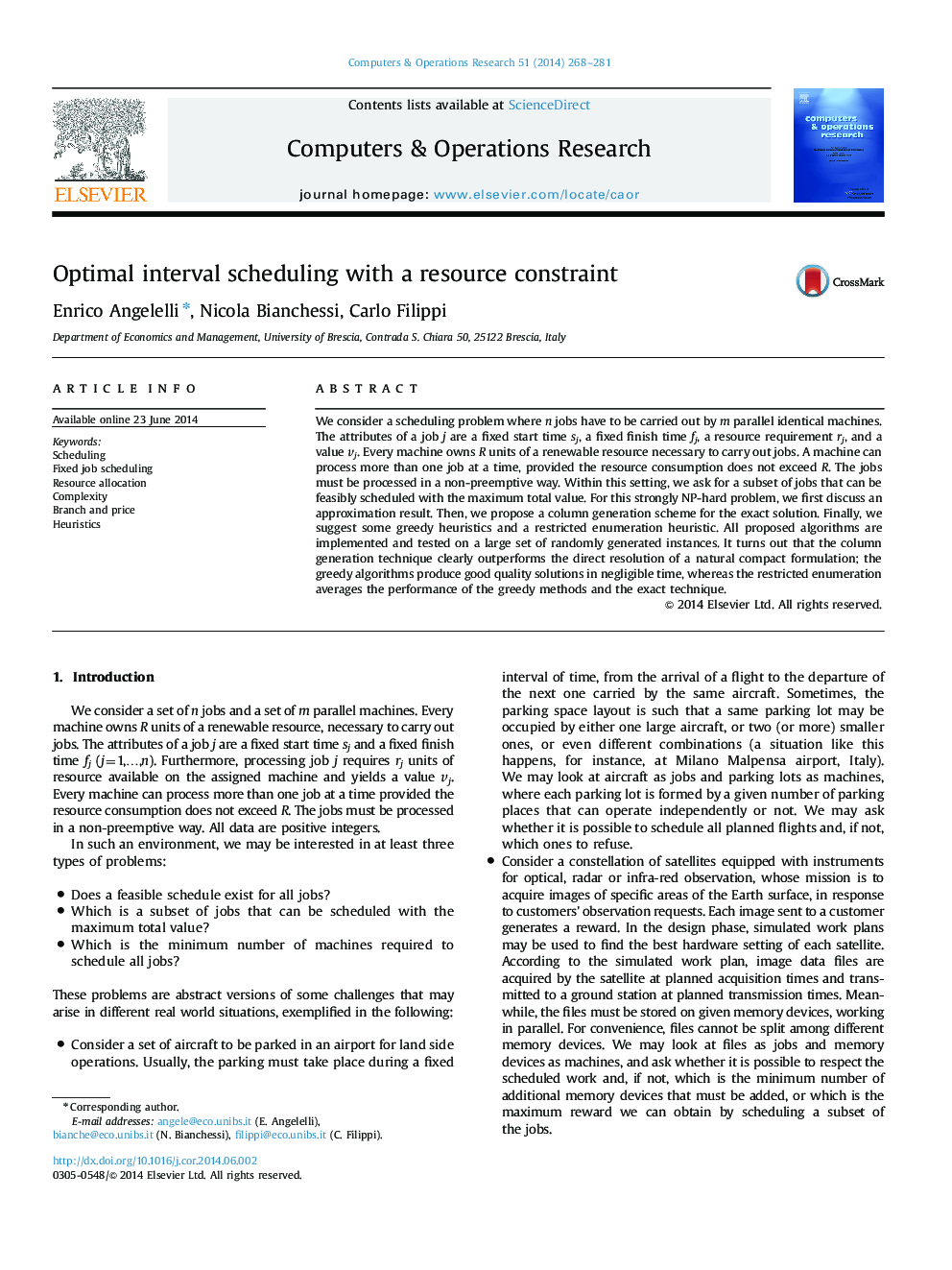| Article ID | Journal | Published Year | Pages | File Type |
|---|---|---|---|---|
| 475551 | Computers & Operations Research | 2014 | 14 Pages |
We consider a scheduling problem where n jobs have to be carried out by m parallel identical machines. The attributes of a job j are a fixed start time sj, a fixed finish time fj, a resource requirement rj, and a value vj. Every machine owns R units of a renewable resource necessary to carry out jobs. A machine can process more than one job at a time, provided the resource consumption does not exceed R. The jobs must be processed in a non-preemptive way. Within this setting, we ask for a subset of jobs that can be feasibly scheduled with the maximum total value. For this strongly NP-hard problem, we first discuss an approximation result. Then, we propose a column generation scheme for the exact solution. Finally, we suggest some greedy heuristics and a restricted enumeration heuristic. All proposed algorithms are implemented and tested on a large set of randomly generated instances. It turns out that the column generation technique clearly outperforms the direct resolution of a natural compact formulation; the greedy algorithms produce good quality solutions in negligible time, whereas the restricted enumeration averages the performance of the greedy methods and the exact technique.
